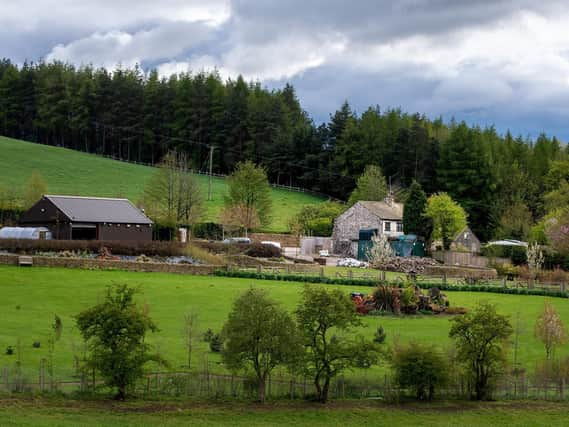Developer wins planning appeal against Craven Council over rebuilding of historic farmhouse he demolished - but refusal of permission for canine hydrotherapy centre is upheld


David Eckersall said he had faced 'a challenging few years' since he knocked down Nutter Cote Farm at Thornton-in-Craven, near Skipton, part of a terrace of listed properties that once formed a Georgian laithe farm, without planning consent after believing it had become structurally unsafe.
Mr Eckersall was fined £20,000 after being convicted of planning offences at Bradford Crown Court in 2017 - and subsequently applied to Craven Council to rebuild the property using some of the original materials.
Advertisement
Hide AdAdvertisement
Hide AdYet several proposals were rejected by council planners over concerns that his plans for a replacement dwelling were not historically authentic, and the authority then served him with an enforcement notice in 2018, claiming that a static caravan, shipping container, septic tank and garden store on the site were not permitted. A further application to build a canine hydrotherapy centre on the land was also refused.
He and his wife Christina launched a legal appeal against Craven Council and the case was heard by HM Planning Inspectorate earlier this month.
A decision by the inspector overseeing the inquiry, John Braithwaite, has now been published and the findings are mainly in favour of the Eckersalls.
Mr Braithwaite has quashed the enforcement notice and granted listed building consent for the rebuilding of Nutter Cote Farm within three years, but upheld the council's reasons for refusing the canine hydrotherapy centre.
Advertisement
Hide AdAdvertisement
Hide AdMr Braithwaite ruled that the reconstruction would contribute to the conservation of an historic asset and would comply with the Local Plan, yet imposed a range of conditions, including requirements to submit designs for various parts of the building for approval from planning officers.
He considered that the temporary structures present on the site that had caused contention, including the shipping container and caravan, were all classed as permitted developments while development is ongoing and did not require consent if the work was finished within a reasonable period of time.
However, he said the building planned for the canine hydrotherapy pool was large by relative standards, visible from the road and 'unattractive and intrusive' in appearance. He added that it did 'not respond adequately to its context and surroundings' and that there was no proof of demand for such a facility, meaning the building could end up being redundant or underused. He added that there was 'no certainty' it would benefit the area economically.
The Eckersalls' solicitor Lindsay Dixon, from Leeds firm LTA Law, released a statement on their behalf: "My clients are delighted to have secured planning permission for the rebuilding of their property after an extremely challenging few years for them. They now hope to look towards the future and draw a line under this difficult period”.
